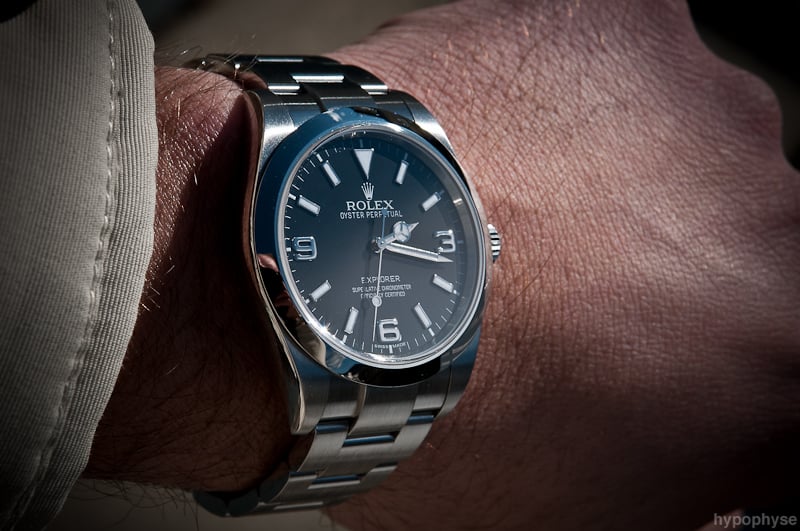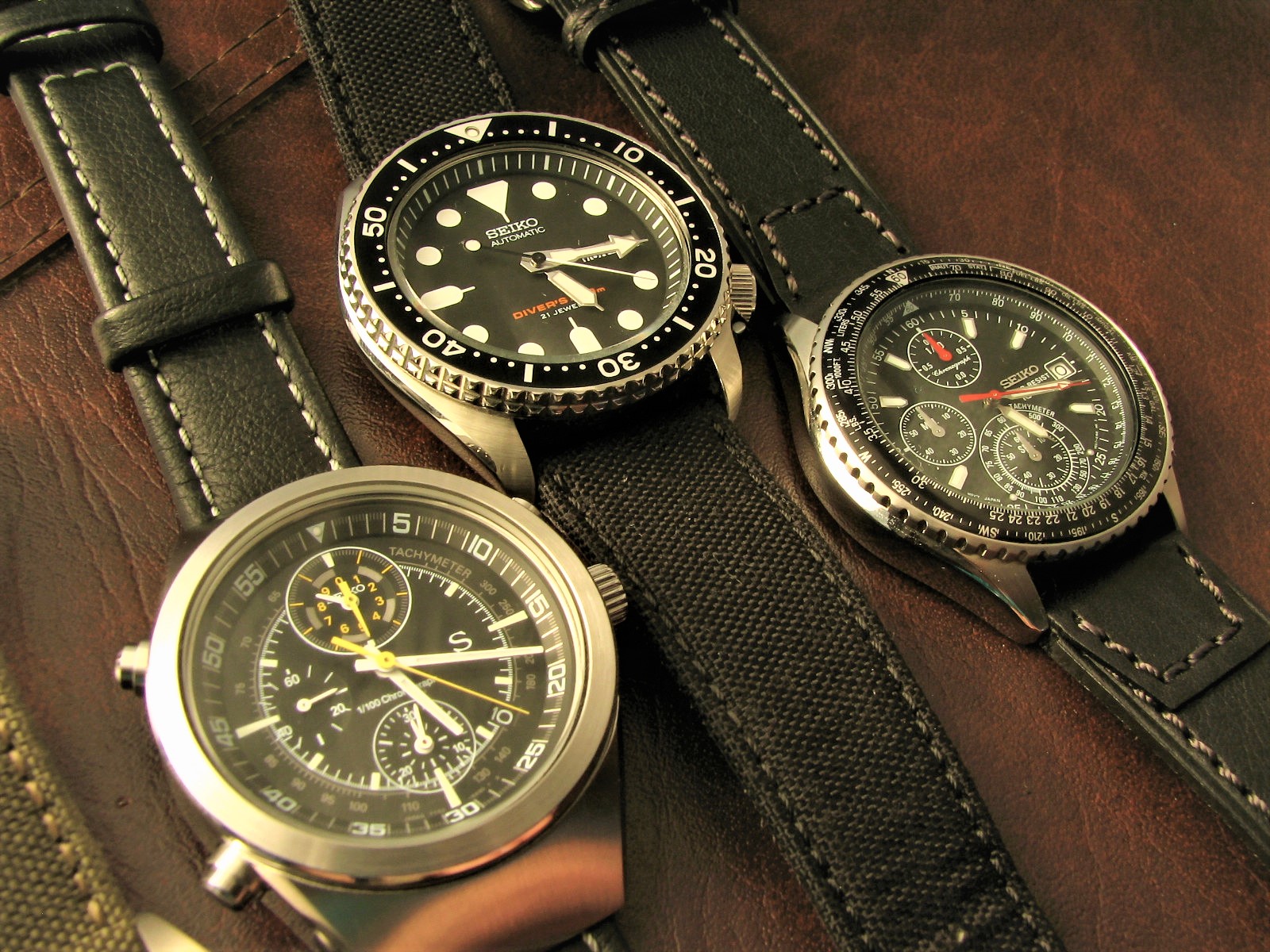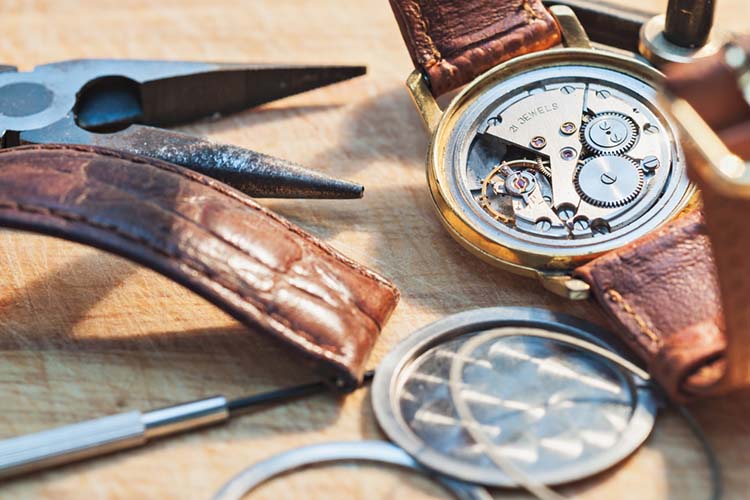So, you’ve heard about atomic watches, and now you want to know what all the fuss is. Simply put, an atomic watch is the most accurate timepiece you can buy. Given the level of accuracy, you might expect atomic watches to be astronomically priced, but there are affordable models from brands such as Casio and Citizen.
Atomic watches are calibrated by an atomic clock and maintain their calibration by receiving radio signals from that clock. An atomic watch is more accurate than any other kind of watch on the market and is the same technology that NASA uses for its countdowns. An atomic watch gives you the same accuracy.
Table of Contents
What is an Atomic Clock?
That probably sounds pretty cool, but now you’re surely wondering, “What makes an atomic clock so accurate?”
The science behind atomic clocks is considerably complex to explain adequately. Still, in the simplest terms possible, an atomic clock determines the length of a second by measuring the number of oscillations of a cesium-133 atom. The number of cesium oscillations that occur in a second is 9,192,631,770. Yes, you read that right, 9 billion.
Specifically, what is being measured is the transition (i.e., oscillation) of electrons between energy levels. This is measured by observing the microwave signals emitted by electrons during this transition. Since it’s easier to measure slower-moving targets and atoms move slower at lower temperatures, the most accurate atomic clocks cool the atoms to the point of almost absolute zero.
Understanding the exact mechanism of atomic clocks and how the length of a second was originally determined would involve a much deeper dive into atomic physics. Rest assured, atomic clocks are the most accurate means of measuring the time science has developed.
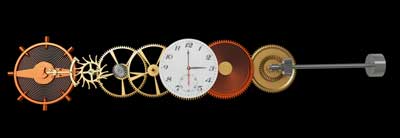
Atomic Watches Are More Accurate
If you own any watch other than an atomic watch, you don’t have the most accurate timepiece available. Your birthday present from your spouse is likely a fine piece of craftsmanship, but sadly, in the time it’s taken to read this far into this article, it’s probably experienced at least a few microseconds of clock drift.
All timepieces experience clock drift, defined as the desynchronization of a timepiece from its reference clock. Even if your watch was initially synchronized by the atomic clock, the time will eventually “drift”. A year after you bought the watch, you would inevitably find a noticeable discrepancy if you were to compare it to the atomic clock.
We have yet to create a clock that doesn’t experience some amount of clock drift. Yes, even atomic clocks drift, but on average, it’s a drift of a single second every 100 million years, so you aren’t going to notice it. It’s estimated that the most precise clock loses one second every 15 billion years, not that anyone has been around long enough to measure it.
So, yes, an atomic watch is more accurate than any other kind of watch on the market. There are some caveats, though.
How Do Atomic Watches Work?
Obviously, you can’t wear a machine that measures atom oscillations around your wrist. Instead, your watch maintains a signal with an atomic clock. In the United States, that is the atomic clock in Fort Collins, Colorado, one of the most accurate in the world. The clock is operated by the National Institute of Standards and Technology (NIST). Atomic watches in other countries communicate with clocks elsewhere in the world.
American atomic watches are programmed to search at least once a day for a 60 kHz radio signal from the Ft. Collins clock, which can broadcast at a range of 1,864 miles. It receives and decodes this signal to maintain its accuracy. The watch doesn’t stay in constant contact with the atomic clock, but it doesn’t need to as 24 hours isn’t long enough for the watch to noticeably drift.
If you’re still interested, here is a short video with a hands-on tour of the atomic clock in Colorado:
Are Atomic Watches Always Accurate?
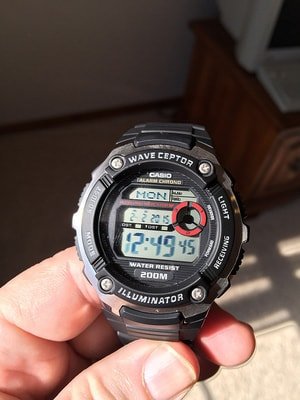
Atomic watches are, unquestionably, amazing pieces of technology, but they aren’t infallible. For an atomic watch to function as it is designed, it must receive the signal from the atomic clock, and two factors can result in it losing that connection.
The first is distance. If the watch moves outside the broadcast range of the atomic clock, it won’t be able to synchronize with it.
Unfortunately, most watches made for the United States can’t synchronize with other atomic clocks because they transmit with a different frequency. This will likely change in the future, but most atomic watches are regionally specific for now.
The other factor that affects an atomic watch is signal disruption. Radio signals can penetrate most surfaces and barriers, which is why they are so helpful, but some elements can entirely disrupt or block a signal.
Certain metals, especially those used for safes or reinforced buildings, hamper radio signals. Also, other radio signals or electronic equipment can interfere, so many watches are programmed to calibrate at night when there is less signal interference.
That said, the amount of disruption that an atomic watch will experience is generally minimal and is unlikely to be noticeable at the human level. Even if the watch is out of range of the signal for a week, it will recalibrate to the correct time once it is back in range.
Newer generations of atomic watches have been made with advancements to reduce these disruptions. Recently developed watches have been equipped with GPS to receive a signal from satellites or synchronize with atomic clocks around the world. It won’t be long before the technology has advanced so much that even these minor issues will be a concern of the past.
Are There Any Affordable Atomic Watches?
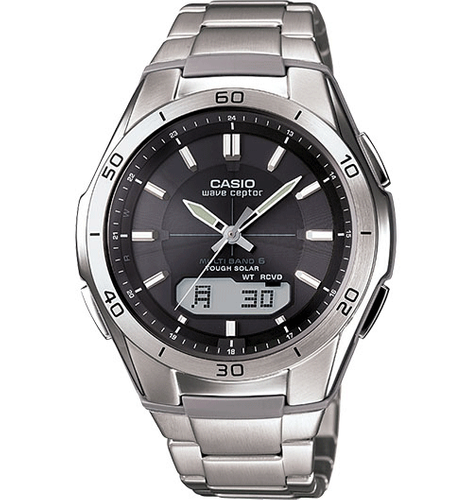
While some atomic watches have astronomical prices, there are some affordable options for everyday wear. Casio, the maker of the bestselling G-Shock watches, makes a series of solar watches run on atomic time.
For example, the Casio G-Rescue Solar Atomic is water-resistant to 200M, solar-powered, and features a countdown timer, stopwatch, alarms, and UDT/world time. For a budget-priced atomic watch, it offers quite a few features (and a manual with enough functions you can spend a weekend tinkering with).
For more info on Casio’s G-Shock Atomic Solar-Powered Watches – click here.
If you have a slightly higher budget, you may want to look up to the Eco-Drive watches by Citizen. Models like the Eco-Drive Navihawk with its Anti-Reflective mineral crystal, quality Japanese quartz movement, and a stylish analog display is one to consider. Unfortunately, this model uses mineral crystal rather than sapphire crystal which is more scratch-resistant, but it’s a minor complaint regarding the quality features of this watch.
The Navihawk radio-controlled timepiece features a 99-minute countdown timer and can display accurate time in 43 different cities on the small digital display embedded in the analog face. It also has Coordinated Universal Time display.
If you are looking for the most bang for your buck in a wallet-friendly atomic watch, take a look at the Casio Men’s AQS800WD-1EV.
It displays world time in 48 cities across 31 time zones, has five alarms and a countdown timer, and is water-resistant to a depth of 100M (about 330 feet). Price-wise, you really can’t find a quality atomic watch for less than this.
Should I Buy An atomic watch?
Atomic watches are a marvel of human ingenuity, to be sure. Without atomic clocks and the science that underlies them, global positioning systems and other technology that’s reliant on precise timings would be far less accurate, if not completely ineffectual. Does that mean you need your personal life ruled by one?
The modern technological world runs on the atomic clock, but an atomic watch won’t make a difference in their lives for most people. Not many day-to-day interactions hinge on millisecond precision. (If your boss is that strict, you should probably look for a new job.)
Much of the decision to own an atomic watch is a matter of taste. If you’re the type who must have the latest, most advanced technology, it doesn’t get much more advanced than an atomic watch. In time, all watches will be atomic, but until then, you’ll have to decide how important those lost microseconds are to you.

